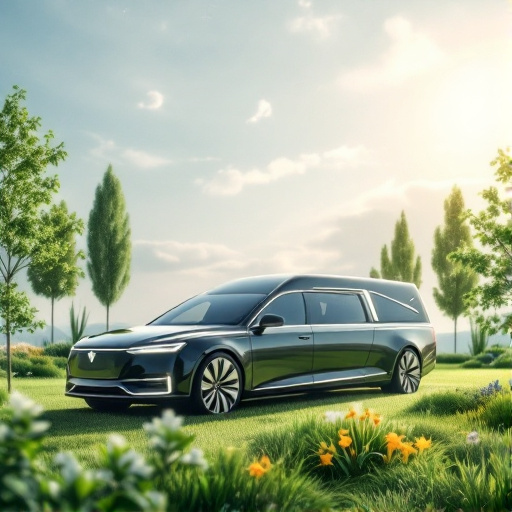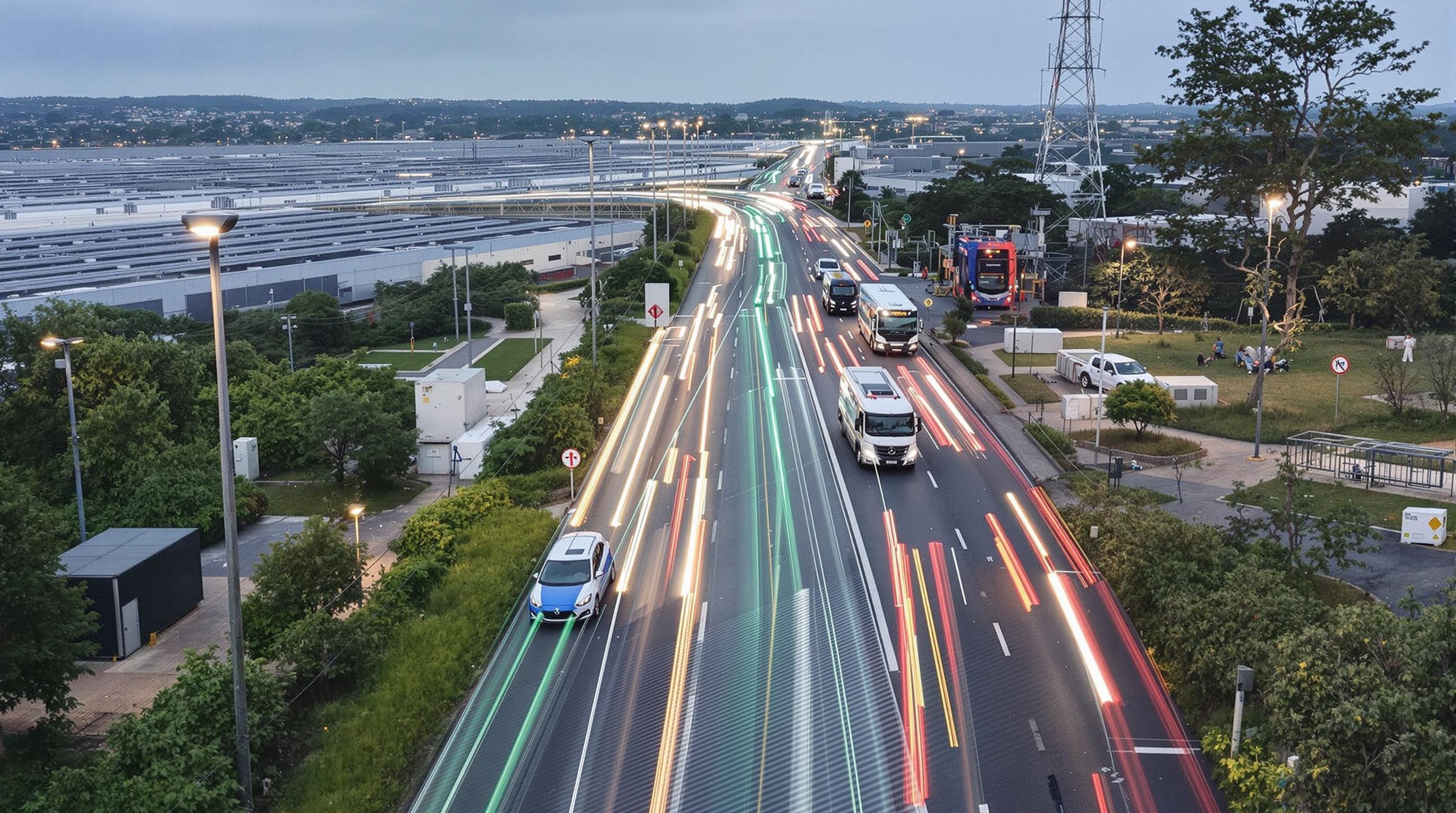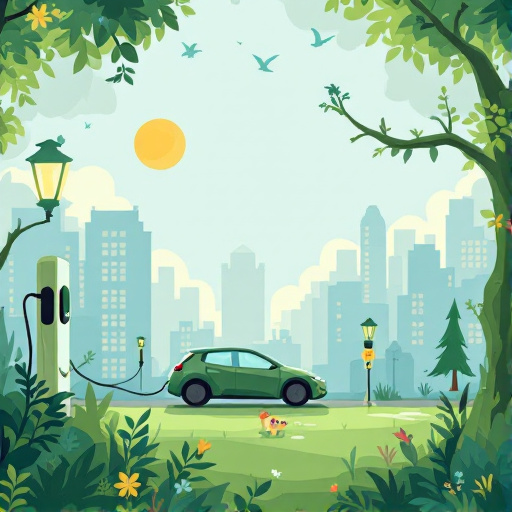Related Articles
- Charged Up! How Electric Vehicles are Reshaping Urban Wildlife Habitats and Biodiversity
- Navigating the Used Car Market: Uncovering the Secrets of 'As-Is' Sales for Savvy Buyers
- The Rise of Electric Car Pop-up Shops: A New Frontier for Urban Retail Experiences
- The Forgotten Art of DIY Car Maintenance: Rediscovering Skills in a Tech-Driven World
- Electric vs. Vintage: The Battle for Enthusiasts' Hearts in the Age of Latest Car Models
- The Rise of the 'Car Review Influencer': How Social Media is Shaping Auto Buying Decisions
"Are We Ready for Electric Vehicle Funeral Homes? The Future of Eco-Friendly End-of-Life Services"
"Are We Ready for Electric Vehicle Funeral Homes? The Future of Eco-Friendly End-of-Life Services"
As the world shifts towards eco-conscious choices in transportation, the concept of electric vehicle (EV) funeral homes emerges as a potential solution for greener end-of-life services. This article explores the viability, implications, and future of eco-friendly farewells in an increasingly environmentally aware society.
The Current Landscape of Funeral Services
Did you know that in the United States, over 2.4 million people are cremated or buried every year? The traditional funeral industry has long been linked to practices that contribute to environmental degradation—think of the emissions from gas-guzzling hearses, the chemicals used in embalming, and the land required for cemeteries. It's only natural to start considering what a shift to eco-friendly alternatives might entail.
Exploring Electric Vehicle Technology
Electric vehicles, in general, have made substantial inroads into reducing carbon footprints. According to the U.S. Department of Energy, EVs emit an average of 60% less greenhouse gases compared to traditional vehicles over their lifetime. This is a profound revelation when we think of the funeral industry—an industry that has seldom adapted to modern sustainability standards.
Climate Change: A Daunting Challenge
The imminent threat of climate change looms large on our planet, with temperatures rising, extreme weather events becoming more common, and ecosystems at risk of collapse. A survey by the Pew Research Center revealed that 67% of Americans see climate change as a major threat. This awareness calls for industries, including funeral services, to reevaluate their practices and step up their commitment to sustainability.
Electric Vehicle Funeral Homes: A Conceptual Introduction
Imagine a funeral home where electric hearses travel silently to pick up loved ones, producing zero emissions as they serve those on their final journey. Are we on the brink of a new era in the funeral industry, where sustainability is prioritized as much as mourning? The answer might be closer than you think.
Case Studies from Around the Globe
In Sweden, a growing number of funeral homes are adopting eco-friendly practices, including EVs. For instance, the "Gröna Begravningar" (Green Funerals) initiative provides families with options for sustainable caskets, biodegradable urns, and electric hearses. This innovative approach aligns with Sweden's goals for a greener society and reflects a broader trend of sustainability in Nordic countries.
Guilt-Free Goodbyes
When it’s time for a goodbye, the emotional weight can be heavy. Imagine how much easier it could be to celebrate a life without the added guilt of harming the environment. As more families seek to honor their loved ones in a manner that respects the planet, the number of eco-friendly funeral options—including EV funeral homes—is likely to rise.
The Environmental Impact of Traditional Funerals
To paint a clearer picture, let's break down some statistics. A study from the Green Burial Council states that a traditional burial can require up to 30 million board feet of wood and 4 million gallons of embalming fluid in the U.S. annually. These figures are staggering, and they beg the question: Can we afford to continue this way?
The Role of Government and Legislation
Government bodies play a crucial role in shaping the future of eco-friendly funeral services. Legislation that incentivizes the use of electric hearses or establishes sustainability standards for funeral directors could pave the way for broader adoption of EV technology in the industry. The acceptance and implementation of green initiatives could ultimately offer businesses a competitive edge.
Barriers to Adoption
However, transitioning to electric vehicle funeral homes is not without its challenges. The upfront costs of electric hearses can be significantly higher than traditional ones. Additionally, many funeral directors have longstanding relationships with their suppliers and may be resistant to change. As the industry adapts, these barriers must be acknowledged and tackled head-on to pave the way for innovation.
A Sense of Community in Eco-Friendliness
One beautiful aspect of humanity is our tendency to rally around shared causes. The movement towards greener funeral services is no different. Communities can come together to support local funeral homes that embrace sustainability, creating a ripple effect of change that encourages more businesses to adopt eco-friendly practices.
Emerging Trends in Eco-Friendly End-of-Life Services
Apart from electric hearses, other innovations like biodegradable burial shrouds and natural burial sites are gaining traction. These options not only minimize ecological footprints but also provide families with a more profound connection to nature in their loved ones' final resting places. Who wouldn’t want a send-off that honors the beauty of life on Earth?
The Personal Touch: Tailoring Services to Individual Needs
One of the heartwarming prospects of electric vehicle funeral homes is the ability to provide personalized services. Families may choose to customize their final farewells, be it through video tributes played during the service or live-streamed eulogies for far-off relatives. Tech-savvy eco-friendly solutions could nurture community, connection, and creativity as part of the grieving process.
The Next Generation of Funeral Directors
We must also consider those who are stepping into the world of funeral services. The millennial and Gen Z generations are known for their advocacy regarding climate change. According to a survey by McKinsey, 78% of young people would switch brands based on sustainability. It’s possible that future funeral directors could drive the change needed within the industry, moving it towards a more eco-conscious framework.
The Naysayers’ Perspective
Not everyone is on board with the concept of electric funeral services. Some skeptics argue that the funeral industry must maintain a sense of tradition and cultural respect, which can clash with modern-day eco-initiatives. This poses an interesting dilemma: How do we balance tradition with innovation while respecting the emotional complexities of end-of-life services?
Beyond Electric Vehicles: Other Sustainable Practices
It's worth mentioning that the conversation about eco-friendly funerals is about more than just using electric vehicles. What about alternative forms of burial, such as aquamation, where bodies are dissolved using water and alkali? This process uses significantly less energy and produces no emissions compared to traditional cremation.
Conclusion: The Path Forward
So, are we ready for electric vehicle funeral homes? The answer leans positively towards the horizon of possibility. While several barriers must be addressed, it’s evident that the demand for eco-friendly end-of-life services is rising. As awareness around climate change continues to grow, funeral homes that embrace electric vehicles and sustainable practices could not only thrive but redefine the industry as we know it.
As with any transition, patience is key. By fostering dialogue, sparking innovation, and ensuring that sustainability becomes as ingrained in the funeral industry as it is in many other sectors, we may just pave the way for a greener legacy for generations to come.




